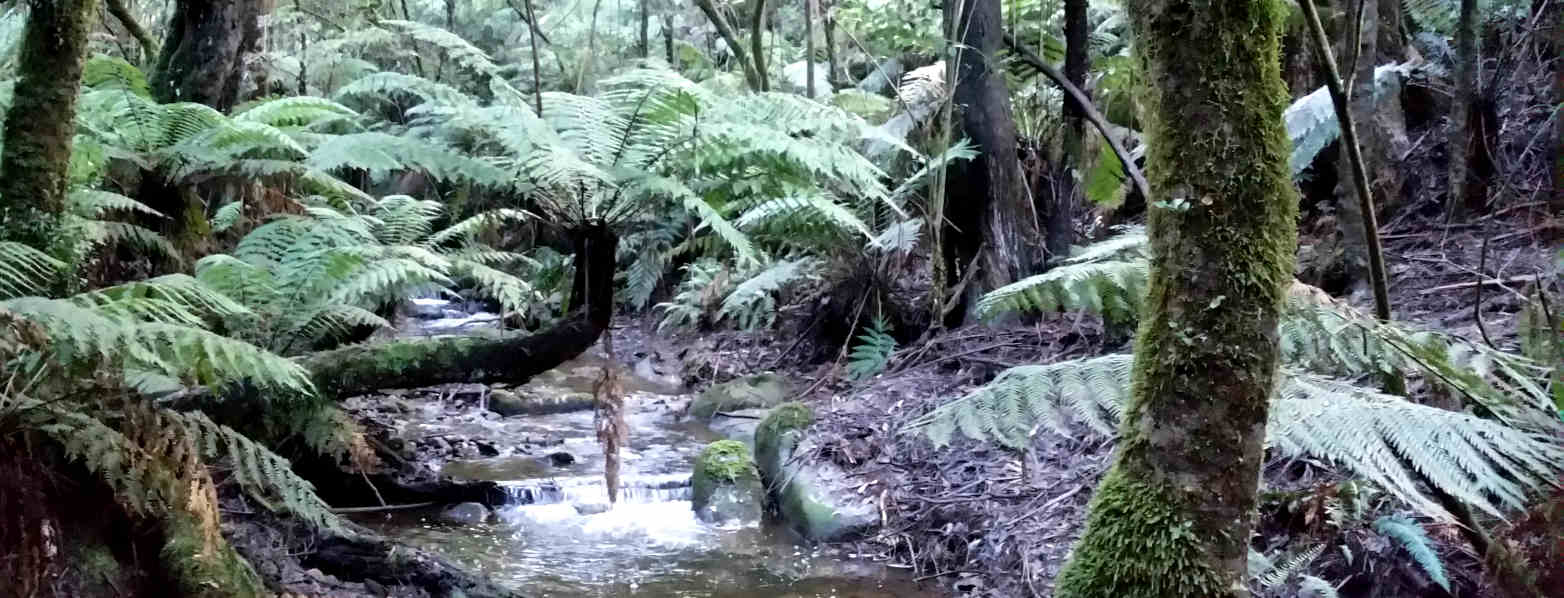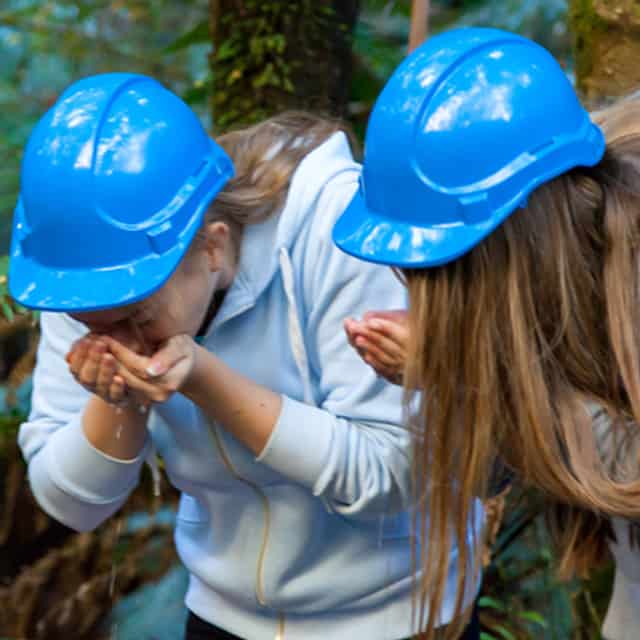Water in the World – Going with the Flow
-
Forest
-
Water
-
Human Impacts



Excursion Program Overview
The Toolangi State forest is critical to Melbourne’s water supply. During this excursion, explore the importance of water to the environment and people. Discuss how forests like Toolangi’s contribute to creating, collecting, storing and filtering water, and explore natural and human influences on water movement and quality. Perform field work data collection activities that compare water quality at the start of a river system to that of your school’s local area.
Inclusions and Notes
Equipment supplied by Gould League: Safety helmets worn by all participants; workbook and all tools required for fieldwork data collection.
Equipment needed: A chartered bus (which is required to remain with the group at all times). First aid kit, sun screen, insect repellent and PPE including hand sanitiser to ensure a Covid safe excursion.
Student needs to bring: Their own water and lunch, sunscreen, a clipboard, pencil, and a copy of the Gould League workbook (usually sent 14 days prior to excursion so copies can be made for students) to guide the forest investigation; bag to take away your rubbish.
Restrictions: This Gould League program is delivered in the Toolangi State Forest, in the North Central Fire District and does not operate on days with a Fire danger rating of Extreme and Catastrophic. On rare occasions, programs may be postponed due to extreme weather predictions involving wind/storms. In both cases, these programs will be rescheduled at the earliest convenience of both parties.
Programs DO operate during wet/snowy weather. Please contact us to discuss the best timing to optimize your group’s experience and ensure suitable clothing and footwear for the conditions predicted. Plan for wet weather from April-October, and expect temperatures at least 5 degrees colder than suburban Melbourne.
Curriculum Links
GEOGRAPHY: Geographical Concepts and Skills – Data and Information
– Collect and record relevant geographical data and information from useful primary and secondary sources, using ethical protocols (VCGGC102)
Geographical Knowledge: Water in the World
– Classification of environmental resources and the forms that water takes as a resource (VCGGK105)
– Ways that flows of water connect places as they move through the environment and the ways this affects places (VCGGK106)
– Nature of water scarcity and the role of humans in creating and overcoming it, including studies drawn from Australia and West Asia and/or North Africa (VCGGK108)
– The spiritual, economic, cultural and aesthetic value of water for people, including Aboriginal and Torres Strait Islander peoples and peoples of the Asia region, that influence the significance of places (VCGGK109)
Earth and Space Sciences
– Water is an important resource that cycles through the environment (VCSSU101)
The Victorian Curriculum F-10 content elements are © VCAA, reproduced by permission. Victorian Curriculum F-10 elements accurate at time of publication. The VCAA does not endorse or make any warranties regarding this resource. The Victorian Curriculum F-10 and related content can be accessed directly at the VCAA website.
